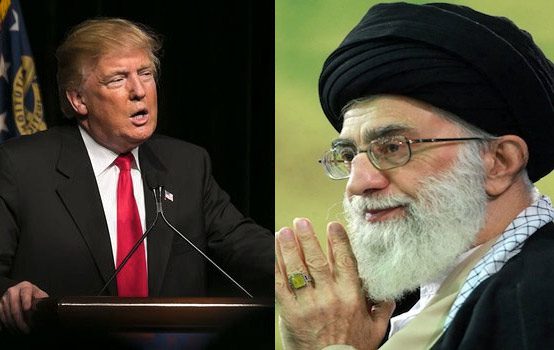The Costs of Misunderstanding Our Adversaries

Trump’s unhinged threats and efforts to strangle Iran’s economy have had the entirely predictable effect of making Iran’s government even more determined to protect itself and continue the policies that the administration wants to stop:
Iran is signaling that it will buck U.S. efforts to roll back its military presence in the Middle East, moving to cement foreign alliances and continuing to project power abroad despite sanctions that have helped put intense pressure on its economy.
Tehran signed a long-term security pact with Syria in August, and has kept up the flow of arms and financial support to proxy forces around the region, according to U.S. officials and a person close to Lebanon’s Hezbollah militia.
On Sunday, Iran’s Supreme Leader Ayatollah Ali Khamenei said in a meeting with air force commanders that Iran needed to boost its personnel and buy more equipment, though he said a war was unlikely. He didn’t elaborate.
Iran hawks have an impressive record of always getting Iran wrong, and this is just the latest proof. Any self-respecting government would respond to a list of preposterous, maximalist demands with defiance and resistance. If the U.S. has insisted that Iran must withdraw from Syria and end its support for the Syrian government, Iran’s leaders will naturally refuse and instead strengthen their ties with Damascus. When Trump and Pompeo tell them they have to abandon their allies and proxies, Tehran will embrace them more tightly. The Iran hawks in the administration don’t understand how the regime looks at the world, and so they think that they can force the regime to give up on things that it considers to be extremely important to its security and to Iranian interests. As usual, they have it all wrong, and they are putting us on an unnecessary collision course with a government and country that they don’t understand in the least.
Try as the Trump administration might to strangle Iran into submission, this is sure to backfire and produce more of the behavior that they claim to want to end:
“It is an absolutely misguided perception that the Iranians will retreat from the region if they have economic problems,” said Ali Vaez, Iran project director at the International Crisis Group, an independent think tank. “Whenever they come under increased pressure, they feel the need to double down.”
This is only the latest example in the ongoing inability of American policymakers to put themselves in their adversary’s position. If our positions were reversed, we would be responding in exactly the same way for many of the same reasons. Imagine that we were confronted by a much more powerful, hostile state, and this state issued a series of demands that dictated that we surrender on every front in our own part of the world and give them whatever they want on pain of severe economic punishment and possibly even a military attack. Would we accept all of their terms and let this state dictate our policies for us, or would we tell them to go to hell? Of course, we know the answer to that. The failure of so many of our policymakers to acknowledge that other states have legitimate interests and agency of their own leads us down the same dead-end road of confrontation and unnecessary conflict. Our political leaders have to recognize that the U.S. has no right or authority to dictate to other governments what their policies will be, and they need to learn how to see the world as the leaders of other governments see it. If they don’t, we will keep plunging into senseless, avoidable wars again and again.
Comments